RBS smashes expectations with £940m profit
State-backed bank celebrates half-year success, but shadow hangs over rest of year
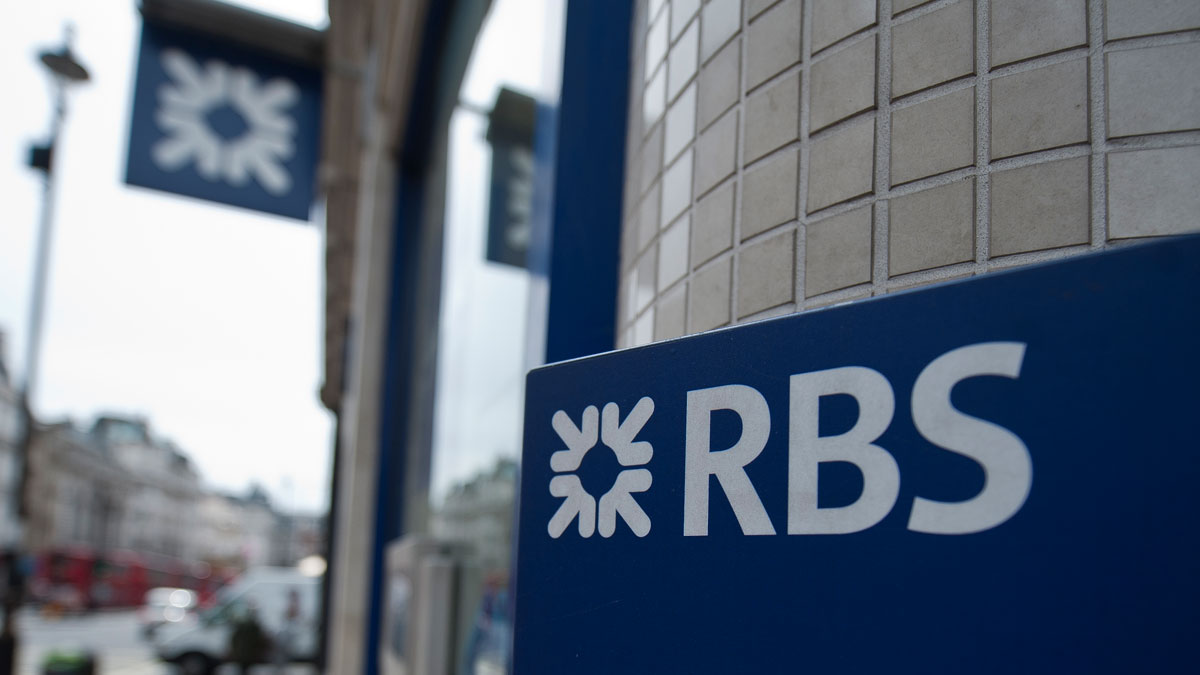
A free daily email with the biggest news stories of the day – and the best features from TheWeek.com
You are now subscribed
Your newsletter sign-up was successful
RBS share sale: taxpayer makes £1bn loss on 'fair value' disposal
4 August
Re-privatisation of Royal Bank of Scotland has officially begun after the body which controls the Government's shareholding sold off a £2.1bn stake overnight, in a disposal which has crystallised a big loss for the taxpayer.
At the close of Monday trading UK Financial Investments, which manages the Treasury's shareholding in UK banks including RBS and Lloyds, confirmed widespread reports that it was to begin selling shares as it announced it was seeking to offload a 5.2 per cent interest to institutional investors. In the event demand was higher than anticipated and 5.4 per cent was sold, taking the taxpayer holding from an overall 78.3 per cent to 72.9 per cent, according to ITV News.
The Week
Escape your echo chamber. Get the facts behind the news, plus analysis from multiple perspectives.

Sign up for The Week's Free Newsletters
From our morning news briefing to a weekly Good News Newsletter, get the best of The Week delivered directly to your inbox.
From our morning news briefing to a weekly Good News Newsletter, get the best of The Week delivered directly to your inbox.
UKFI wrote to Chancellor George Osborne yesterday saying now was the right time to begin the process of divesting from the bank, as the current share price represents a "fair value" and "institutional investor sentiment and risk appetite remain conducive to participating". Investor demand is likely to have been boosted by better-than-expected results last week, which showed the bank returned to profit in the second quarter.
There were questions over the timing, however. The 330p per share price achieved, a 2.3 per cent discount on Monday's closing price, is well below the 502p at which the Government invested in 2008 and represents a £1bn loss to the taxpayer. While it is generally considered unlikely the break-even price is achievable, RBS shares were sold near a 52-week low of 326p reached in May. The Financial Times notes they were trading above 400p "as recently as February".
Osborne has frequently defended the decision to return the bank to the private sector, where he says it will thrive and contribute more to the state in the long term. In the wake of the sale, he said now "is the time for RBS to rebuild itself as a commercial bank, no longer reliant on the state, but serving the working people of Britain".
RBS shares were up around one per cent to 341p in morning trading.
A free daily email with the biggest news stories of the day – and the best features from TheWeek.com
RBS share sale could begin 'in the next few days'
31 July
The re-privatisation of the Royal Bank of Scotland, once the largest lender in the world before an ignominious fall from grace and taxpayer bailout in 2008, could begin "in the next few days", according to reports.
Yesterday the bank reported a surprise swing into profit in the second quarter, with a £293m gain for the three months to June coming on the back of a sizeable £446m loss in the first three months of the year. Reuters says that the stronger results could prompt chancellor George Osborne to seek an earlier sale of shares to private investors, citing sources who claim an initial disposal is possible in the coming days, but is "more likely in September".
The Times says a "multibillion-pound sell-off" could come as early as Tuesday. It reports that investment bankers handling the sale, which was announced by the Government in June but was initially expected to take place next year, "began calling investors this week" once it became aware of the bank's improving position.
In a separate article, the paper notes that UK Financial Investments, which controls the stake on behalf of the Government, could initially seek to sell about £2.5bn, or 6 per cent, of the bank's shares. The public owns 78 per cent of RBS and Osborne has pledged to sell down around three-quarters of this within five years. The Times also notes the sale could be delayed until September amid questions from some investors over an ongoing regulatory review of the banking market.
After rising in early trading, shares in the bank drifted lower in the afternoon and closed down 2.4 per cent at 344.8 pence. With the Government having invested in 2008 at a price of 502 pence, the taxpayer is set to make a substantial loss on the sale.
Osborne gets RBS sell-off boost as bank returns to profit
30 July
George Osborne's plan to return the Royal Bank of Scotland to the private sector has received a boost after the bank reported a second-quarter profit, but its past wrongdoings continue to weigh on its turnaround.
In its half-year results the bank revealed it had made a net profit of £293m for the three months to June, reversing a loss of £446m in the first quarter. It came despite restructuring costs, which have doubled to more than £1bn, and was in part the result of a surge in RBS's mortgage business, with the Financial Times noting an uplift in lending of 43 per cent.
The return to the black will be warmly received by the Government as it plans to sell down its 80 per cent stake, perhaps as early as next year. With shares currently around 355 pence it will make a loss on the buying-in price in 2008 of 502 pence, but a recovery will at least allow Osborne to fulfil his promise of achieving "the best price possible". He is a keen advocate of returning the bank to the private sector, where he argues it will thrive and contribute more to the state over time in corporation tax.
But RBS has not yet shaken off its troubled past. While costs relating to legal action over historic wrongdoing and mis-selling fell in the second quarter, the bank has been forced to set aside more than £1.3bn over the first half of 2015 as a whole, well above the £250m for the same period in 2014 and enough to leave it £153m in the red.
Speaking on Radio 4's Today programme, chief executive Ross McEwan dismissed headlines over these costs as "a lot of noise" that can be "very distracting", and insisted that the improvement in profitability in the second quarter shows that RBS "is a very strong bank".
RBS bill in the billions could hamper government sell-off
03 July
The Royal Bank of Scotland is facing a huge bill to settle a dispute with US regulators that could extend into billions of dollars and hamper government efforts to offload the state-owned bank.
A court filing submitted on behalf of the Federal Housing Finance Agency in Connecticut has estimated a penalty of $13bn (£8.3bn), the Financial Times states. The amount is based on an earlier ruling in New York, which the Daily Telegraph says could result in a separate penalty of $450m (£289m).
Commentators argue the case is very unlikely to go to trial after the earlier ruling against the bank and that a settlement figure would be significantly lower. Bloomberg analysts estimate the final sum could be between $1.8bn and $4.5bn.
This could still be significantly in excess of the amount RBS has set aside to cover any fine. The FT says outgoing chairman Sir Philip Hampton said in a recent interview that the bank had set aside $2.5bn for a settlement.
Sir Philip had also indicated the uncertainty could pose problems for the plans to offload the 79 per cent stake the taxpayer controls in RBS that were announced by George Osborne last month. He said it "might be a good idea for that to be out of the way" before privatisation starts.
The news of the penalty sent RBS shares down 2 per cent in early trading to 358p. The government acquired the shares in 2008 at an average price of 500p.It has long been considered unlikely that a streamlined RBS would recover to its boom-era valuation and that the taxpayer would take a hit on the sale. In the latest sign of the bank's focus on its domestic retail market, RBS announced earlier this week it would pull out of cash management services outside of the UK and Ireland.
Osborne's plan to sell off RBS: a repeat of Royal Mail debacle?
11 June
The government is to begin selling off its £32bn stake in the Royal Bank of Scotland at a significant loss to taxpayers, in Britain's biggest privatisation to date.
Speaking to top bankers at last night's annual Mansion House dinner, Chancellor George Osborne announced that the sell-off would begin in the coming months and insisted it was "the right thing to do for British businesses and British taxpayers".
The government paid 500p a share when it bailed out RBS after the financial crash in 2008. With the price currently standing at 354.8p, the taxpayer would lose £7.2bn if the shares were sold now, says the Financial Times.
The Chancellor was quick to acknowledge that the sell-off would leave taxpayers out of pocket. "Yes, we may get a lower price than that was paid for it – but we will get the best price possible," he said. "For the longer we wait, the higher the price the whole economy will pay."
He was advised to begin selling off the government's stake by Bank of England governor Mark Carney, who said it would "would promote financial stability" and benefit the wider economy, according to the BBC.
The Unite union questioned the Chancellor's timing, accusing him of "short-changing the public" by selling the stake at a "knock-down rate" to City investors. While the public might eventually be given the opportunity to buy shares in the bank, major investors will be first to take advantage of the deal.
The move was also highly criticised by Labour, with MP Teresa Pearce likening the plan to the Royal Mail fiasco. "Osborne sold the Royal Mail on the cheap and now he's in danger of doing the same with RBS," Pearce told the Daily Mirror.
But amid all the arguments about whether the taxpayer will lose out, "you could be forgiven for missing the bigger political issue", says the BBC's economics editor Kamal Ahmed.
The Chancellor is "philosophically opposed" to the government owning major businesses like banks and believes RBS will thrive in the private sector, returning high profits and, in turn, paying more tax.
But ultimately "this is a privatisation rush in keeping with the fact Britain now has a Conservative majority government", says Ahmed. "If it can be sold, it will be."
-
 Quiz of The Week: 14 – 20 February
Quiz of The Week: 14 – 20 FebruaryQuiz Have you been paying attention to The Week’s news?
-
 The Week Unwrapped: Do the Freemasons have too much sway in the police force?
The Week Unwrapped: Do the Freemasons have too much sway in the police force?Podcast Plus, what does the growing popularity of prediction markets mean for the future? And why are UK film and TV workers struggling?
-
 Properties of the week: pretty thatched cottages
Properties of the week: pretty thatched cottagesThe Week Recommends Featuring homes in West Sussex, Dorset and Suffolk
-
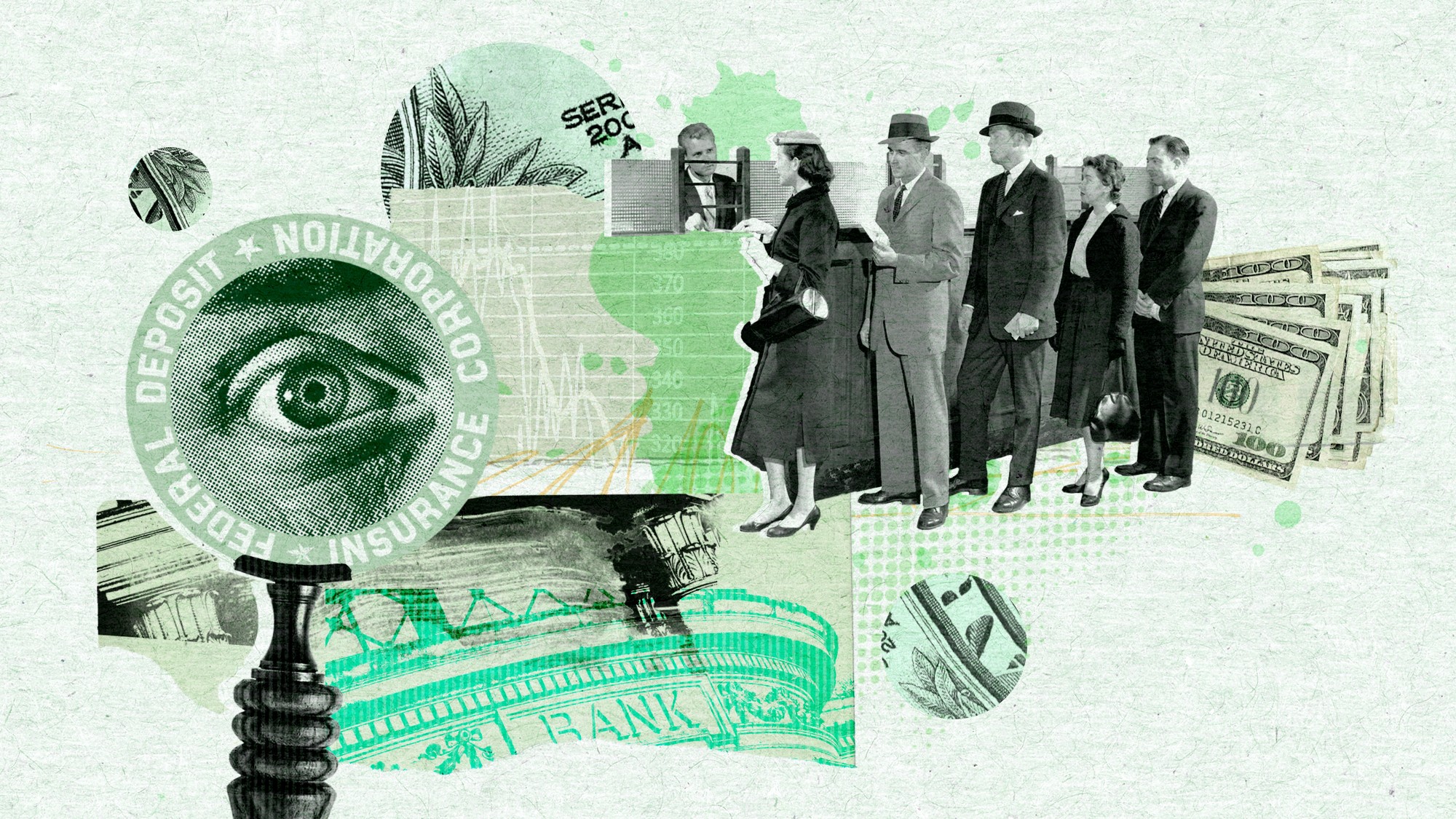 What does the FDIC do?
What does the FDIC do?In the Spotlight The Federal Deposit Insurance Corporation is now a 'Trump target'
-
 TD Bank accepts $3B fine over money laundering
TD Bank accepts $3B fine over money launderingSpeed Read The US retail bank pleaded guilty to multiple criminal charges
-
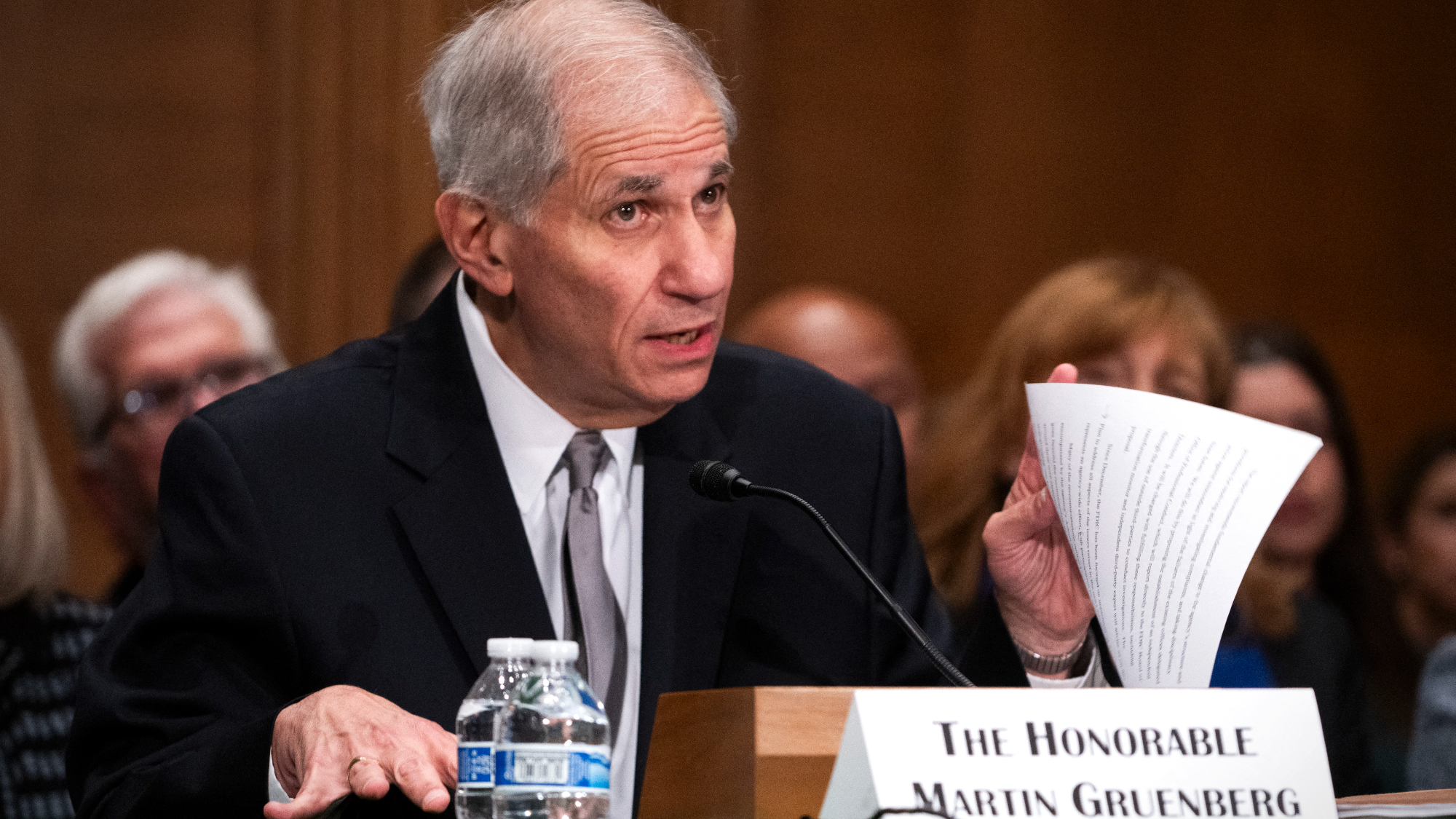 FDIC chair out after toxic work culture report
FDIC chair out after toxic work culture reportSpeed Read The report revealed a trend of sexual harassment and discrimination at the Federal Deposit Insurance Corporation
-
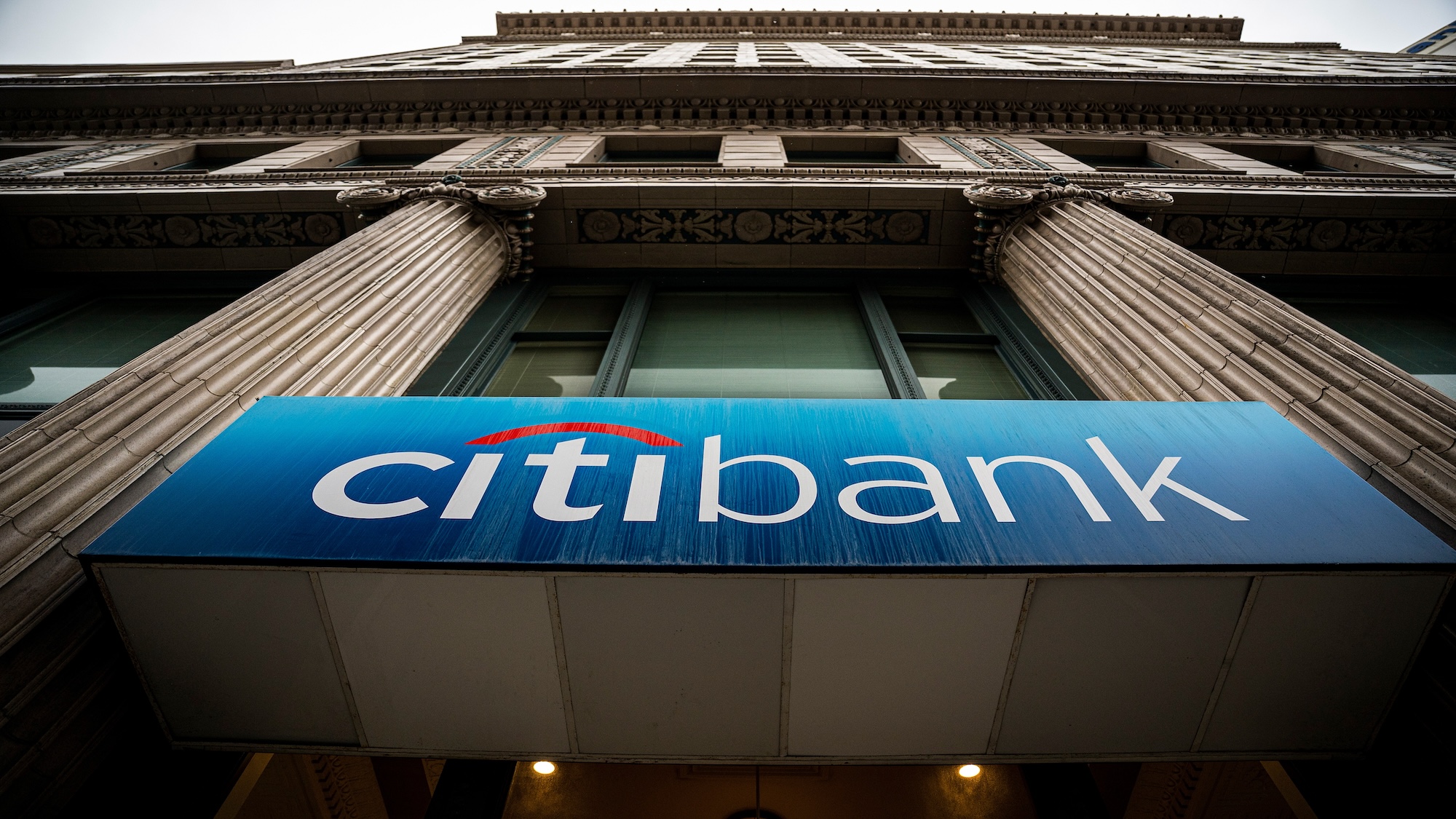 Citibank to cut off online access for customers who don't go paperless
Citibank to cut off online access for customers who don't go paperlessSpeed Read The bank will shut off the customer's access to both their online website and mobile app
-
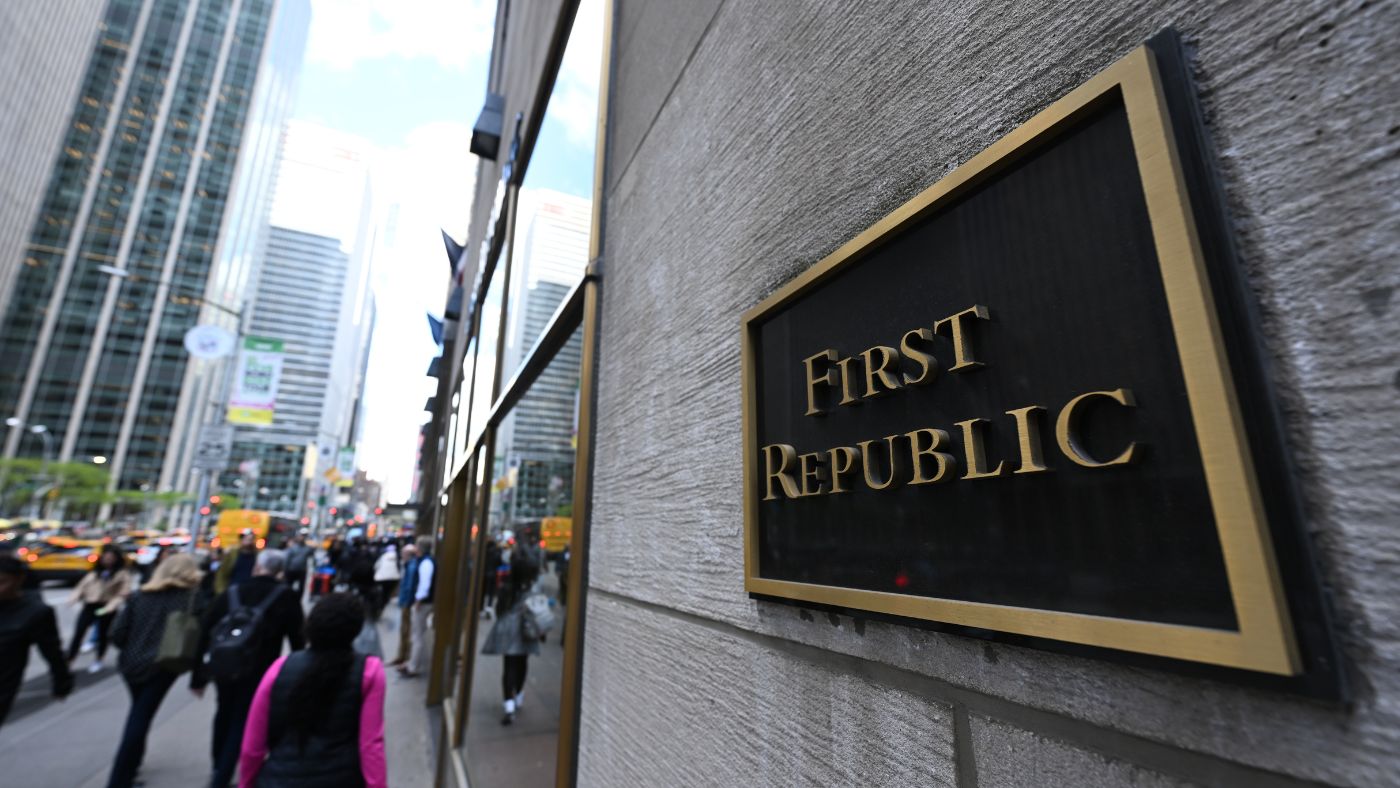 First Republic: will UK banks survive unscathed?
First Republic: will UK banks survive unscathed?Under the Radar US shares dip after collapse of third regional bank, but experts say contagion to the UK is unlikely
-
 Banking crisis: has the city weathered the financial storm?
Banking crisis: has the city weathered the financial storm?Talking Point The financial storm appears to have abated, but no one’s ruling out more squalls along the way
-
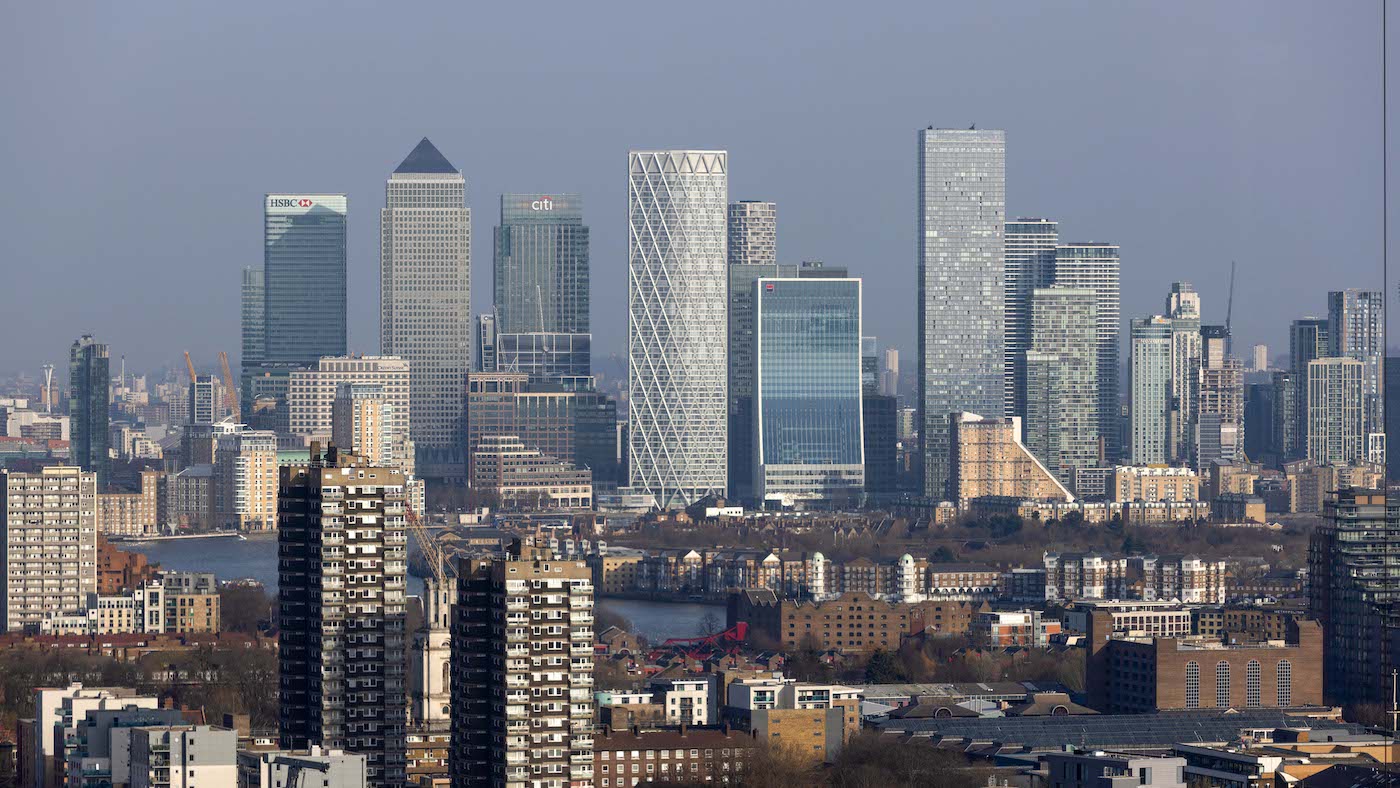 Should the UK relax bank ring-fencing rules?
Should the UK relax bank ring-fencing rules?Talking Point Treasury minister said he hopes to ‘boost competitiveness’ in the City with easing of regulations
-
 Should caps on bankers’ bonuses be scrapped?
Should caps on bankers’ bonuses be scrapped?Talking Point New chancellor Kwasi Kwarteng believed to be planning contentious move to ‘boost the City’